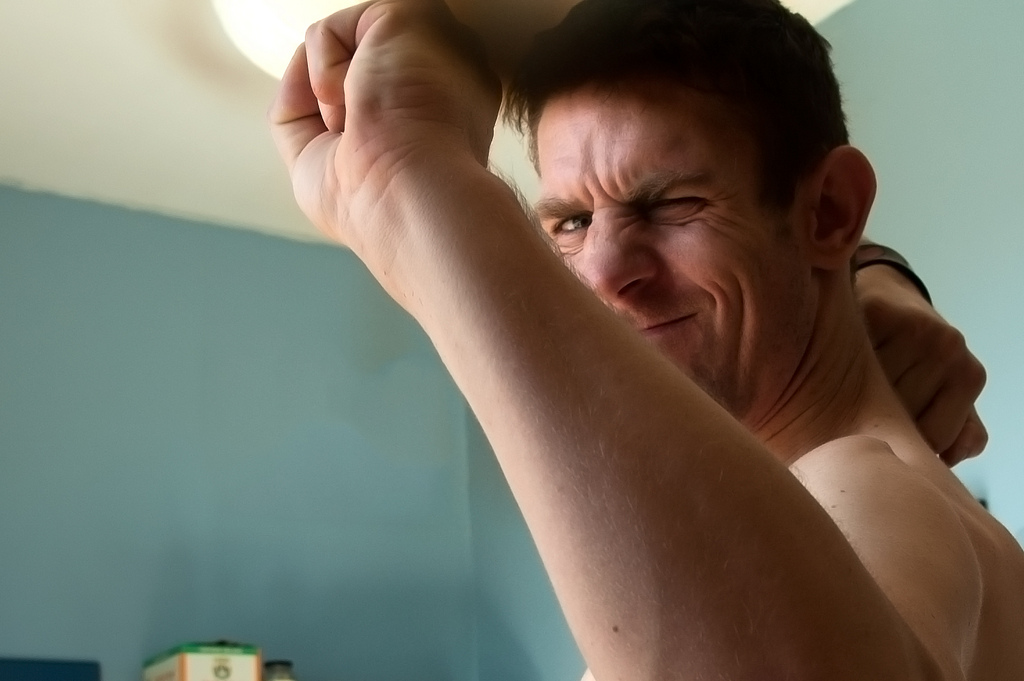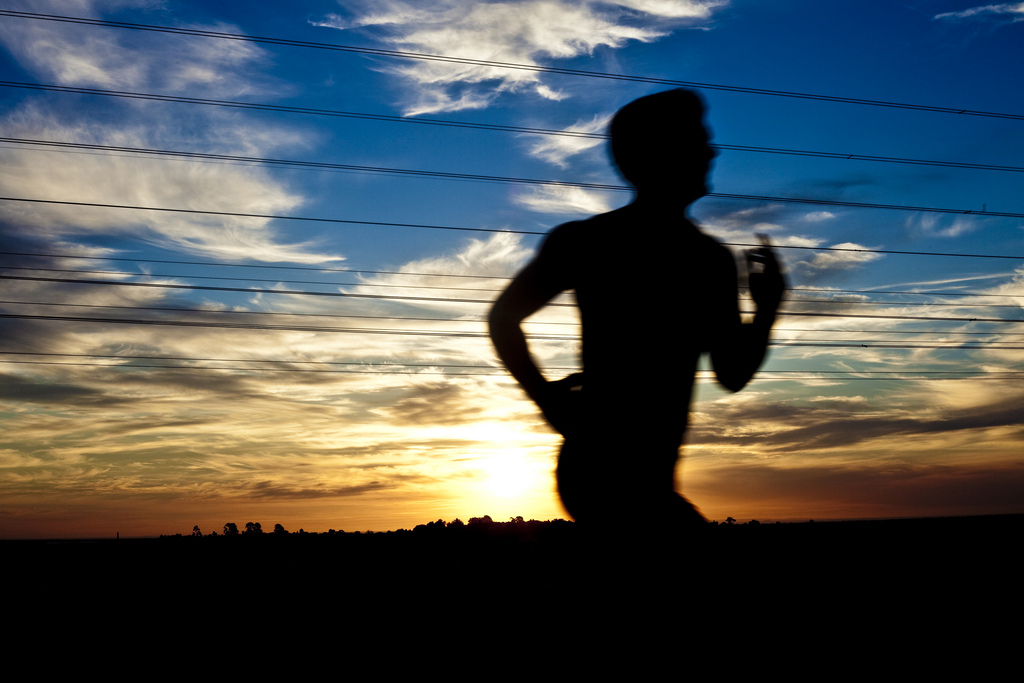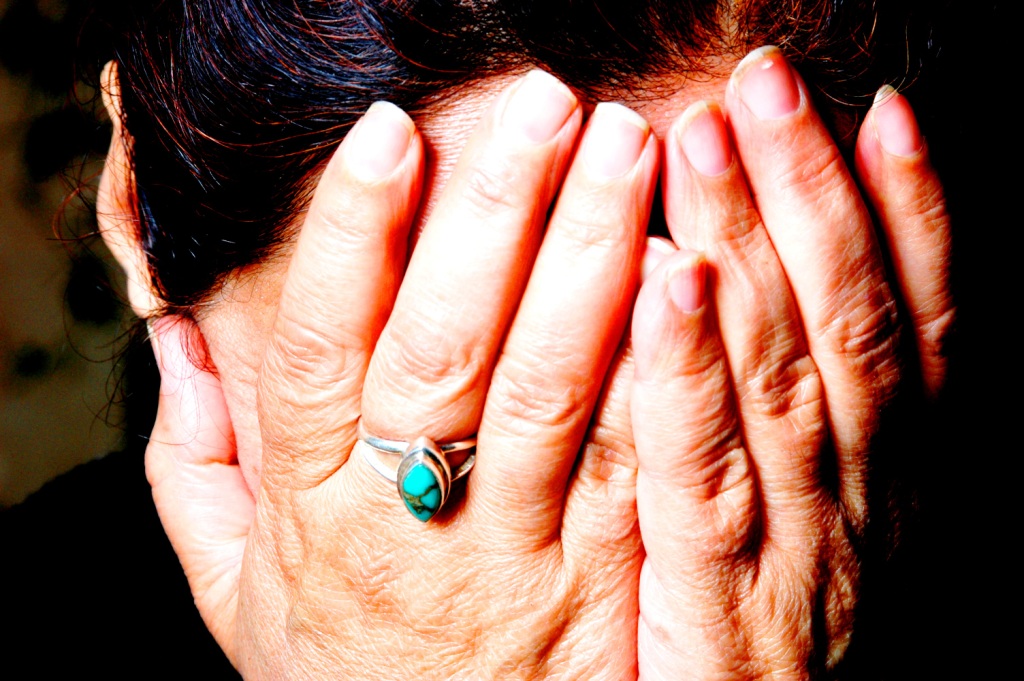“To find real peace you have to let the armour fall.” – Jim Carrey
This is a different kind of story; it’s about my decision to workout less. Before I get to why, I’ll go back to how I started in the first place.
I had a 3kg dumbbell hidden under my bed, and I had a dream that I’d dare not share with a soul. I was going to completely transform myself into someone, and something, that was a cross between Arnold Schwarzenegger and a Dragon Ball Z character.
I was 16 at the time, and the designated ‘baby-faced, skinny little kid.’ No one gave me a hard time, but I was far from easy on myself. I felt that I lacked a certain presence and that people just didn’t take me ‘seriously.’ So from the first time I managed a single chin-up, I was hooked. I felt capable, I felt powerful, and I felt like someone else.
Fastforward to my early adult years and that’s exactly what I became.
Mentally and physically, I was someone else. I put on 25kg – a mix of lean muscle and body fat. I devoted my spare time to training, eating, and reading fitness related magazines and forums. In comparison to the vain fit-guy stereotypes, I was never saw myself above others; I just saw myself differently. In addition to feeling great from the constant supply of endorphins, I also felt a sense of purpose and belonging from the lifestyle I was living. Don’t worry, I’m not selling gym memberships here.
Buddha called it some 2,500 years ago: everything has its extremes, and I went there. As other areas of my life became less satisfying or more stressful, I turned to the gym more often. If I felt insecure about anything, I would psychologically patch over it with my physique.
Like any addiction, you just want, and need, more. I was becoming less satisfied with my achievements, but the thrill of lifting those few extra reps would always keep me coming back. And when I couldn’t get anymore reps out… I’d come back anyways. After all, I had to ‘keep up.’ This was in reference to standards which I now know are unrealistic.
I was exhausting myself, risking injury, and despite how my body looked – my mind was being polluted by all the BS inherent to the fitness industry.
So I passed on the endless plates of chicken breast and went ‘cold turkey.’ I took a one year break from the gym and my decade long habit of bodybuilding. I still took part in cardio and basic calisthenic exercises, but I avoided the gym, supplements, and traditional weightlifting. And with this change of behaviour came a change of mindset. These five points that helped me to improve my relationship with exercise and my body.
1 – Goals shouldn’t be counterproductive.
Rather than permanently quitting the gym, I revised by goal to just being fit and maintaining the ability to live an active life. What’s the point of lifting three times your bodyweight if it means getting an injury that seriously inhibits you later on in life? I recently met a world famous ex-bodybuilder to find that he now walks with a limp after two hip replacements. Slogans like ‘go hard or go home’ get thrown around, but go too hard and you’ll have trouble getting out of your home.
2 – Progress is progress.
It’s important to be driven; how else is one expected to push through several hours of intentional discomfort each week? But there comes a point where enough is enough. You have to celebrate your success as much as you plan to improve. Buddha also got hit by this realisation a bit late too: we all age and deteroiate. So we may as well enjoy and appreciate our bodies while we have the chance.
3 – Worth isn’t based on looks.
There are certain physical features that are generally going to be desirable. They’ll be found more often on models, but that is certainly no reason to put ourselves down. I learned that there are many more important things to base one’s worth and value on. Sure, my friends noticed the change in my body; but since my personality remained, they still liked me; I’m generous, funny, and a good dancer. This reminded me that I should like myself too.
4 – The field is not fair.
I felt I was always trying to catch up to the people in the gym and magazines; but in such a competition, there is no fairness. Genetics play a big role, as does doping, and even photoshop. So it’s important to be realistic with your goals and focus on the improvement of yourself, not the competition with others.
5 – Balance is important.
This isn’t the balance of your body; it’s balance in your life. Too much of any activity can be detrimental. Just because one person goes to the gym after work and another goes to the bar, doesn’t mean either is necessarily better off. It’s possible to regularly visit bars without drinking in excess, and I’ve proven it’s possible to exercise to the point where it IS in excess. Ultimately, it’s up the individual to make the decision to leave the bar by 6pm so they can be home in time, or to only exercise 3 days a week so they have the energy to focus on other important things in their life.
Please note, this is just my personal experience. I’m not specifically advocating exercising more or less; I’d rather you think about what I’ve written in order to make that decision for yourself.
Photo by David Goehring






Love this, Ricky! All so true. I’d lost sight of the balance as well, and finding my footing was sure a process :) How guilty I felt for a time for not working out as much! And as with all addictions, it caused me to go deeper . . .
Thank you!
Thanks for reading Susan. Have you managed to find your balance since?
Interestingly, Ricky, I have. It wasn’t always pretty :) An injury forced me, really, to go from jogging and lifting weights to walking and doing Pilates. The “Worth isn’t based on looks,” was a big one for me–and one I wasn’t very aware I had.
Again, thank you. I just loved this!
I find your article inspiring, i totally agree with you regarding progress is progress not make how small it’s. Sometimes when we set goal for ourself, we focus more on the goal than the progress we are making to achieve the goal. For every progress we make while achieving our goals should be celebrated, that’s what gives the positive energy to keep moving on. The journey is more important than the destination. Balance is also very important…..
Agreed Darlington! There is a great analogy by Alan Watts – life is a musical , you are meant to since and dance the whole way, not just wait for the final cord.